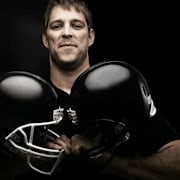Leadership Under Pressure: Insights from a Navy SEAL

I recently had the pleasure of interviewing former Marine and Navy SEAL Mike Sarraille on Power Athlete Radio to discuss leadership. Sarraille, a veteran of one of the world’s most elite military units, shared insights shaped by years of leading in high-pressure environments. Here are the key takeaways from our conversation.
1. Key Leadership Qualities in High-Stress Situations
According to Sarraille, leaders must be decisive, resilient, and able to remain calm under pressure. SEALs are trained to adapt when things go wrong, staying focused and executing without panic. In chaos, calm and quick decisions save lives.
2. Balancing Leadership in a Highly Skilled Team
In SEAL teams, where everyone is highly trained, leadership is about empowering others. Sarraille emphasized the importance of knowing when to lead and when to step back, allowing others to take charge based on their expertise. It’s all about trust and collaboration.
3. Making Tough Decisions Under Fire
Leadership in extreme pressure involves focusing on the process, not emotions. Sarraille shared how, in critical moments, the ability to gather information, assess risks, and act decisively makes the difference between success and failure.
4. Building Trust and Maintaining Morale in Adversity
In high-risk missions, trust is built through shared experiences and competence. Maintaining morale means honest communication and keeping the team focused on the mission, even when things get tough.
5. Sustaining Mental Toughness
Mental toughness is key to long-term success in the SEALs. Sarraille stressed the importance of daily mental conditioning and focusing on small victories to stay sharp, resilient, and focused over years of deployments.
6. Handling Failure as a Leader
Failure is inevitable, but Sarraille believes that what matters is how leaders respond. By learning from mistakes and taking ownership, leaders create a culture of growth rather than blame.
7. Keeping Teams Aligned
In rapidly changing situations, keeping teams focused requires clear communication and the ability to adapt. Leaders must simplify complex problems and ensure everyone stays aligned with the mission’s goals.
8. The Most Important Leadership Lesson
Sarraille’s greatest leadership lesson is agility. Leadership can't be rigid because every team member and situation is different. To succeed, a leader must adapt and leverage the unique skills of each person. Great leaders know how to use each team member's strengths to achieve the mission's goals.
9. Mentoring the Next Generation
Mentorship is critical in SEAL teams. Senior leaders pass their knowledge on to younger SEALs, knowing these individuals will one day face the same high-stakes environments. This cycle of learning and teaching keeps the teams strong.
10. Advice for Civilian Leaders
Sarraille advises civilian leaders to build a culture of trust, accountability, and ownership. Leadership, whether in the military or in business, is about empowering your team, setting clear expectations, and leading by example.
Mike Sarraille’s leadership lessons transcend the battlefield, offering practical advice for any leader seeking to cultivate discipline, trust, and adaptability. The essence of leadership, as he sees it, is staying calm under pressure, empowering others, and always striving to learn and improve.
